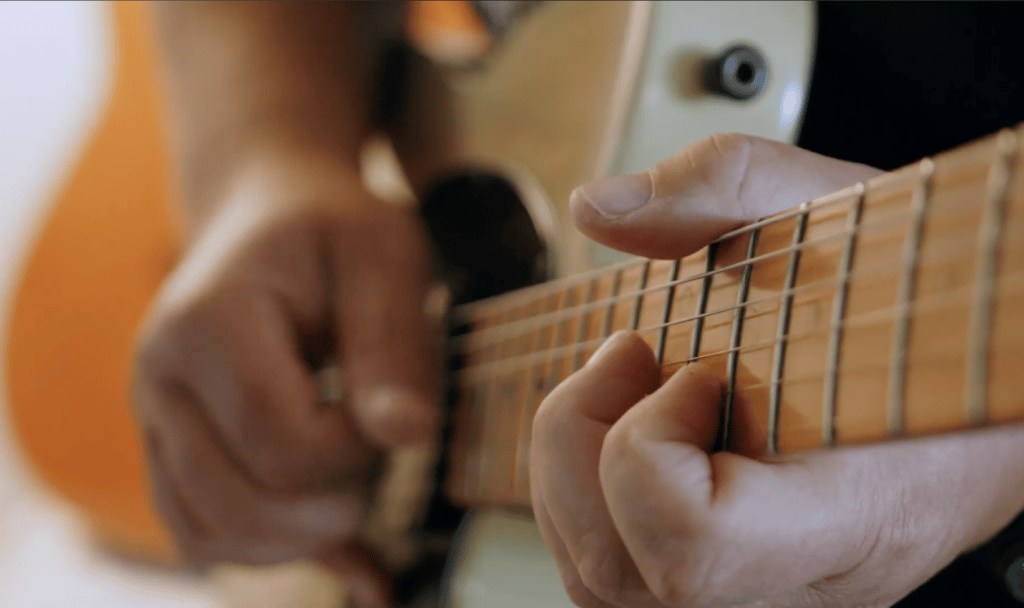Music Therapy
Music can entertain and inspire, and most people have experienced this. But music also has powerful psychological effects, improving health and overall well-being. This connection between music and mental health is the basis for music therapy.
Music Therapy for Mental Health in Southern California
Music has the potential to affect most people in a significant way. Music can touch emotions, trigger memories, and plant the seed of inspiration, much like art therapy. Therefore, musical creation and performance can benefit those struggling with mental health and mental disorders.
Music therapy uses music within a clinical setting to accomplish therapeutic goals. This process is supported by a professional music therapist. The therapist’s objectives are to help restore, maintain, and improve the client’s psychological and physical health. It is a proven method for mental health issues with great results.
Music therapy can address a variety of healthcare goals, for instance:
- Promoting Wellness
- Managing Stress
- Relieving Pain
- Expressing Feelings
- Enhancing Memory
- Improving Communication
Various Types of Music Therapy

Music therapy uses music’s naturally mood-enhancing properties to support people struggling with mental illness. Listening to, creating, and performing music can improve a person’s mental health and well-being. Improving a person’s well-being and attitude is the goal of music therapy.
A music therapist will structure a particular session to best address the unique needs of their client(s). Toward this end, such sessions may include:
- Listening to live or recorded music
- Playing instruments
- Composing original songs
- Writing song lyrics
- Singing (solo or to musical accompaniment)
- Drumming or other percussive instruments
- Dancing or moving to live or recorded music
- Writing dance choreography for music
- Discussing one’s emotional reaction to a particular song
- Learning music-assisted relaxation techniques (e.g., progressive muscle relaxation or deep breathing)
What Are the Benefits of Music Therapy
Aside from being a source of inspiration, pleasure, and contentment, music has many other psychological benefits. It can help relax the mind, energize the body, and even alleviate physical pain. Music therapists work with clients to ensure they get the most out of their sessions.
Music and the Brain
Music therapy’s many benefits relate to how music affects the human brain. Music provides a total brain workout. For instance:
- Musical training promotes neuroplasticity by using the brain’s left and right hemispheres.
- Music induces the release of neurotransmitters and hormones such as dopamine, serotonin, and oxytocin.
- Listening to or playing music is a great way to keep the brain active, engaged, and healthy throughout aging.
Physical and Psychological Benefits of Music Therapy
Music therapy can promote emotional health, help patients cope with stress, and enhance overall psychological well-being. The benefits of music therapy include:
- Improves cognitive performance
- Promotes attention, concentration, and mental alertness
- Helps reduce stress
- Improves memory
- Facilitates learning a new language
- Nourish imagination and creativity
- Helps to reduce physical pain
- Elicit memories and emotions
- Improve mood
- Reduce anxiety and blood pressure
- Reduce symptoms of depression
- Enhance the harmony of physical movement
- Improve the quality of sleep
How Does Music Therapy Work?
Experts have determined that five main factors contribute to the effects of music therapy.
1. Modulation of Attention
Music tends to be captivating, and it grabs a person’s attention. It can distract from other sensations, perceptions, or thoughts associated with negative experiences. In other words, pleasant music supports shifting attention away from what a person perceives as their “problem.” This shift provides space for healing resources.
2. Modulation of Emotion
Music can regulate the activity of parts of the brain related to the initiation, maintenance, termination, and modulation of emotions. In other words, music therapy can powerfully transform a person’s emotional terrain from negative to positive, from hopeless to inspired, and from stuck to flowing with new possibilities.
3. Modulation of Cognition
Music is related to memory processes, including the encoding, storing, and decoding of events related to musical experiences. So, music therapy exercises a person’s cognitive capacities.
4. Modulation of Behavior
Music evokes and conditions behaviors such as the movement patterns involved in walking, speaking, and grasping. So, music therapy can support the modulation of behavior.
5. Expanded Communication Options
Music not only powerfully affects communication but is a means of communication. Therefore, music can play a significant role in relationships by providing a nonverbal communication. And it offers nonverbal people the opportunity to communicate without words.
Music is also a preverbal language, allowing people to access preverbal experiences. Music allows people to interact in emotional, relationship-oriented ways that may not be possible when relying exclusively on verbal language.
Music for Mental Health with SoCal Mental Health
SoCal Mental Health offers co-occurring disorder treatment to those struggling with mental health disorders and secondary substance use disorders.
Our skilled counselors and mental health professionals utilize various therapeutic modalities: conventional, holistic, and complementary. These include:
- Cognitive-behavioral therapy
- Dialectical behavior therapy
- Acceptance and commitment therapy
- Mindfulness-based stress reduction
- Trauma-informed therapy
- Humanistic therapy
- Holistic therapy
Meet Our Music Therapist: Will Nephew
Our music therapy facilitator, Will Nephew, helps clients communicate, create, and heal through music. Clients write and record original songs using a mobile recording studio and various musical instruments such as guitars, drums, and keyboards.
The healing process deepens in creating and performing music, and clients experience new ways of communicating with themselves and others. This process supports overall psychological well-being and perfectly complements other healing modalities. Our music therapy services help clients connect and improve their communication skills.
At SoCal Mental Health, we are committed to treating our clients using evidence-based treatments such as music therapy. We work with clients to help them recover from substance abuse and mental health challenges.











